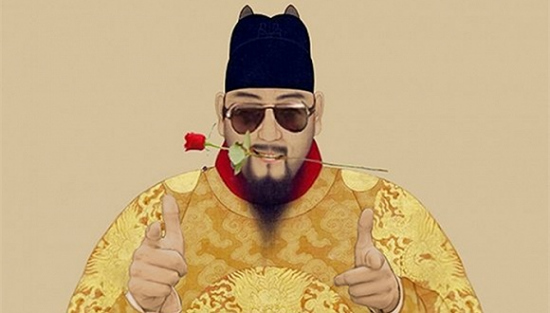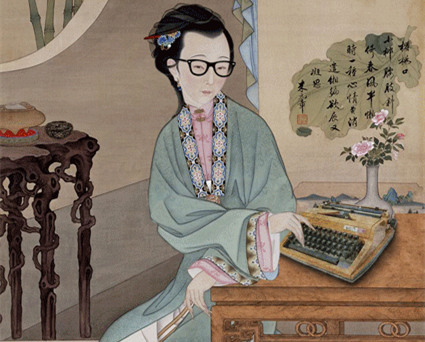
Zhu Di in the video.
If the Chinese emperor who ordered the Forbidden City's construction were still alive, he'd be rapping about his courtly antics and taking photos with an iPhone.
This is how Chinese Internet firm Tencent imagines the digital life of Zhu Di, a Ming Dynasty emperor. During Zhu Di's reign, the empire's capital moved from east China's Nanjing to Beijing.
A video featuring Zhu Di dancing, rapping, and texting emoticons to his concubines via Tencent messaging services WeChat and QQ went viral on Wednesday, when the tech giant announced a partnership with the Palace Museum, the official name of Beijing's Forbidden City.
Tencent will work with the Beijing landmark to digitize its rich historical and cultural legacy, which spans nearly 600 years.
As the name Forbidden City suggests, many details of daily life behind the red walls at the heart of Beijing have been lost to history. To raise interest in its past, the museum, which draws 15 million visitors each year, has started telling stories about the palace complex and its former residents on social media. It has also begun selling souvenirs online, inspired by the museum's art collection and the people who lived and worked within the walls during China's imperial days.
The Palace Museum's latest outreach campaign has mostly been an online affair, using popular social networks such as Sina Microblog and WeChat to reach the country's educated younger generation, whose growing pride in the country's cultural heritage has helped shape consumption patterns.
The potential to profit from the Forbidden City's dazzling cultural wealth has made companies like Alibaba and Tencent eager to help with digital outreach.
In addition to its Tencent partnership, the Palace Museum also struck a deal with Alibaba in June to sell tickets, souvenirs and books on the company's Tmall online marketplace.
As of the end of last year, the Palace Museum had brought in 1 billion yuan in revenue from selling Forbidden City-related products.
It has also developed a string of interactive apps to help people appreciate the museum's art collections. The apps have been praised for their design and ability to make art accessible to the general public.
"The Forbidden City is in the midst of transformation," said Shan Jixiang, director of the Palace Museum. "We want to use the Internet and new technology to share the Forbidden City's rich cultural heritage with a broader population in creative ways, so that young people will take more interest in China's traditional culture."
Tencent, China's internet giant, has signed a three-year deal with the Palace Museum to promote traditional Chinese culture through the creativity of today's youth. The two will work on emoticons on QQ (the most-used instant messenger in China), games, animation and literature based on traditional cultural stories in China. Competitive events and cross-industry cooperation are in the works.



















































